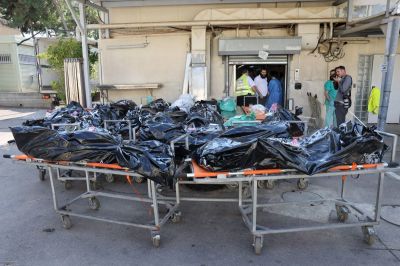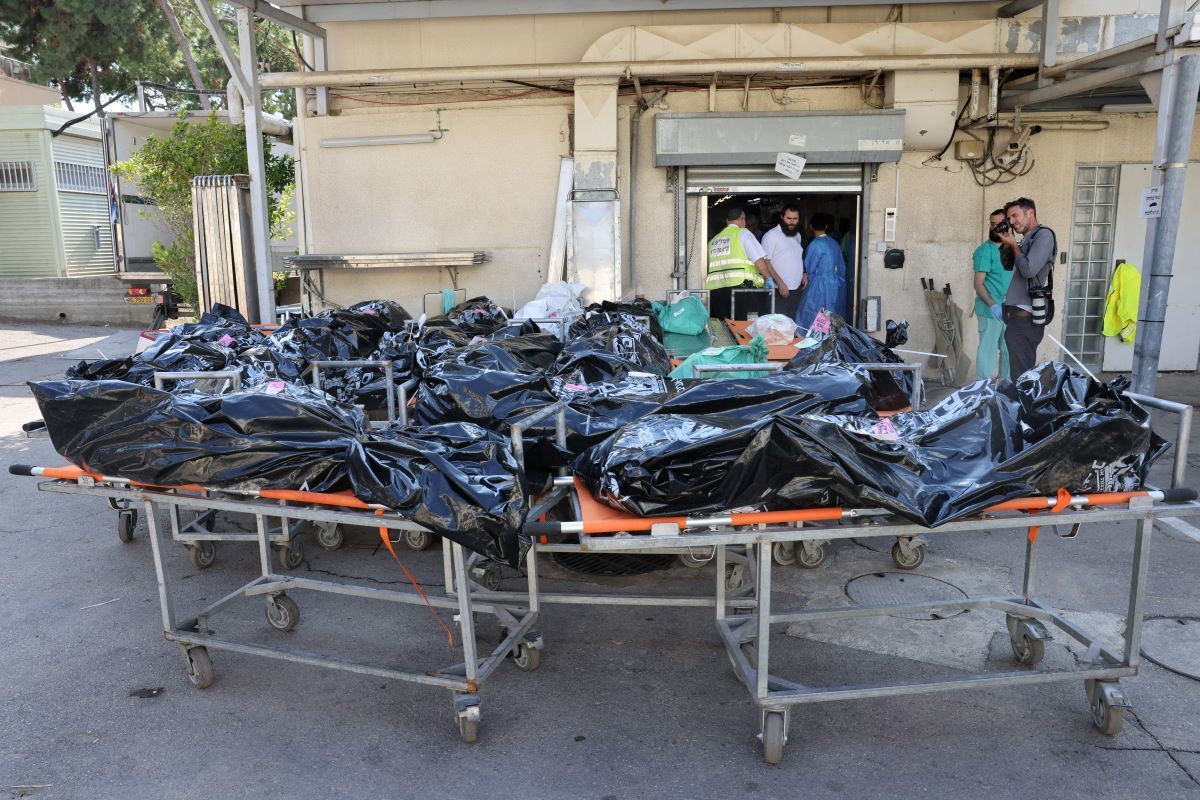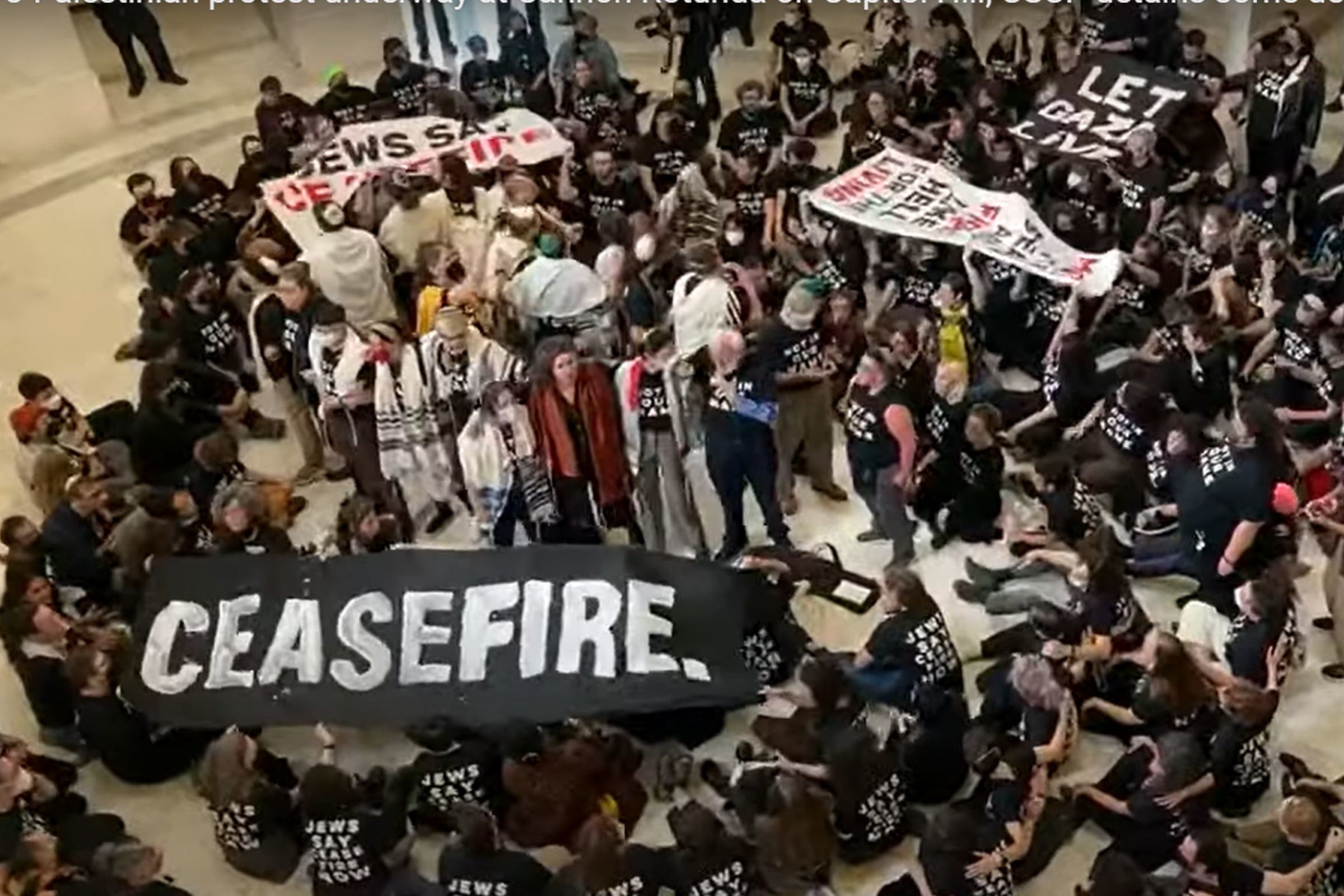
On Oct. 7, people were reminded yet again that the world is a very dangerous place. And if civilized nations do not uphold at least minimal standards of decency and humanity, then the world will inevitably descend to evermore depraved displays of man’s inhumanity to his fellow man.
The terrorist gang known as Hamas brutally attacked Israeli men, women and children in widespread and unprovoked attacks in which the goal was to kill as many Jews as possible just because they were Jews (Hamas’s charter declares the goal of killing the Jews and driving them into the sea).
Hamas has been the de facto government of the Gaza Strip for more than a decade now. They have taught their children to hate the Jews and have attempted to “dehumanize” Jews in the same ways the Nazis propagandized their young people in the 1930s.
Now, in response, Israel has declared war against Hamas. Frankly, I do not know what other response a civilized state could undertake, given their God-given responsibility to protect their citizens from harm (Rom. 13:1-7). And yet, there are worldwide demonstrations chanting, “Gas the Jews!” and calls for Israel to declare a “ceasefire.”
Hamas has withdrawn back within the Gaza Strip where they use innocent civilians (including women and children) as shields, putting military headquarters in the basements of hospitals, etc.
Such events have led many in at least the Western world to revisit the concepts and tenants of Just War Theory. Just War Theory had its beginnings with Aristotle and Plato. In his RepublicandLaws, Plato addressed the subjects of warfare and the state. Through the centuries with St. Augustine and Thomas Aquinas, it was further developed and refined, and with adjustments by Luther and Calvin, it has become the major tool for evaluating when nations, and individuals within the nation, may be justified in engaging in warfare.
Just War Theory (bellum justum) can be broken down into two divisions, the “right to go to war” (jus ad bellum) and the “right conduct in war” (jus in bello).
Just War Theory does not seek to “justify” war but instead acknowledges that resisting aggression is an essential ingredient in maintaining a civilized society and it is sometimes the duty of a nation to defend its citizens. Just War Theory attempts to limit war’s essential barbarity. As the British philosopher John Stuart Mill said over a century and a half ago, “as long as justice and injustice have not terminated their ever renewing fight for ascendency in the affairs of mankind, humans beings must be willing when need is, to do battle for the one against the other.”
Just War Theory demands a just cause, a just intent, a last resort, noncombatant immunity, a just peace and proportionality (meaning will the good achieved justify the destruction and loss of life caused).
As I have witnessed the tragic events in Israel and the reaction around the world to Hamas’ barbarism, I have been reminded of some personal experiences.
Back when I was privileged to be an undergraduate at Princeton University in the late 1960s, I had the further privilege and good fortune to have Dr. Paul Ramsey as a professor in a religion class. Dr. Ramsey, one of the most eminent ethicists in the Protestant or Catholic World, was in the process of applying the criteria of Just War Theory to counter-insurgency warfare.
At Princeton, we had the “precept” system which meant we had two one-hour lectures a week in a course and then a one-hour “precept” with the professor and five or six fellow students to discuss that week’s lectures and assigned readings.
This one particular week in the 1967-1968 academic year, Dr. Ramsey came to the precept straight from Washington (he had just stepped off the train) where he had been consulting at the Pentagon concerning the thorny moral issues of counter-insurgency warfare.
He showed us pictures of oil tank farms in Hanoi both before and after the Hanoi government had moved civilians in tents amongst the oil storage facilities, hoping that using the noncombatants as a shield, the Americans would forgo bombing a legitimate military target in wartime.
Dr. Ramsey showed us the pictures, explained the situation and then asked us to take out pen and paper and using just war criteria, explain under what circumstances the oil storage farm could be attacked in spite of the civilian shield, who bore responsibility for the civilian casualties, and when did the civilian casualties become disproportionate to the military gain.
Dr. Ramsey then said, “Gentlemen, you will not be graded on your ultimate conclusion, but on how you reasoned your way to your answer using just war criteria.”
Welcome to a Princeton education! Dr. Ramsey’s question does get at the route of the current issue. Hamas committed heinous acts and Israel is certainly justified in declaring war. They have a right to defeat Hamas, and in my opinion, arrest and bring to trial Hamas’s leadership, which has certainly broken the Nuremberg Principles put in place in the wake of World War II.
The moral responsibility for civilian casualties lies squarely with Hamas, who shamelessly uses their civilian population as human shields, thus taking advantage of the Israelis much more civilized moral standards.
The moral dilemma, and it is a dilemma, is when do the civilian casualties become so catastrophic that it could, or should overrule the gain from attacking the legitimate military target. This is the moral terrain where the debate about the Israeli assault will be played out in the coming weeks and there are NO easy, pat answers.
The second personal experience comes from one of my visits to the Holy Land in August 2014 to stand in solidarity with the Israelis during the missile onslaughts of that year. During that visit, our group visited the very area of Israel that was attacked on Oct. 7.
I will never forget the parting words of our guide at one kibbutz. He said our visit encouraged and strengthened the town’s residents and speaking personally, he did not hate his attackers. Then he cited Golda Meir’s famous statement that there would be peace “when Arabs loved their children more than they hate us.” And then, speaking of his radical enemies, again citing Meir, “We can forgive them for killing our children, we cannot forgive them for forcing us to kill their children.”
After Oct. 7, I wonder if that is still true, or whether we have crossed a threshold none of us should wish to be crossed.
Dr. Richard Land, BA (Princeton, magna cum laude); D.Phil. (Oxford); Th.M (New Orleans Seminary). Dr. Land served as President of Southern Evangelical Seminary from July 2013 until July 2021. Upon his retirement, he was honored as President Emeritus and he continues to serve as an Adjunct Professor of Theology & Ethics. Dr. Land previously served as President of the Southern Baptist Convention’s Ethics & Religious Liberty Commission (1988-2013) where he was also honored as President Emeritus upon his retirement. Dr. Land has also served as an Executive Editor and columnist for The Christian Post since 2011.
Dr. Land explores many timely and critical topics in his daily radio feature, “Bringing Every Thought Captive,” and in his weekly column for CP.
Free Religious Freedom Updates
Join thousands of others to get the FREEDOM POST newsletter for free, sent twice a week from The Christian Post.




























![[Video] More – Aghogho » GospelHotspot](https://gospelhotspot.net/wp-content/uploads/2024/04/More-Aghogho.jpeg)
















